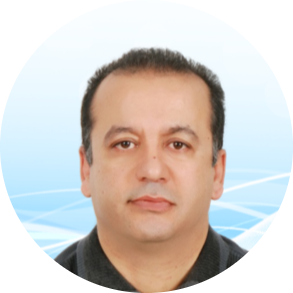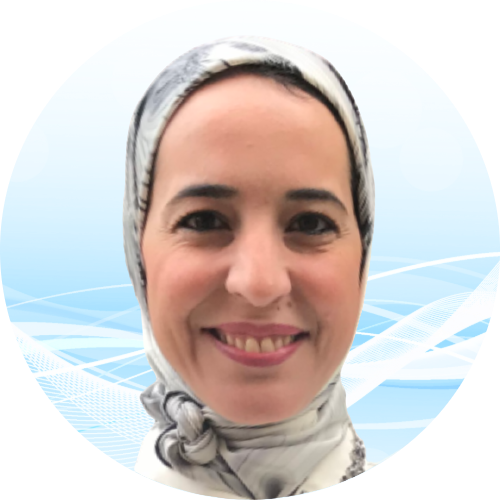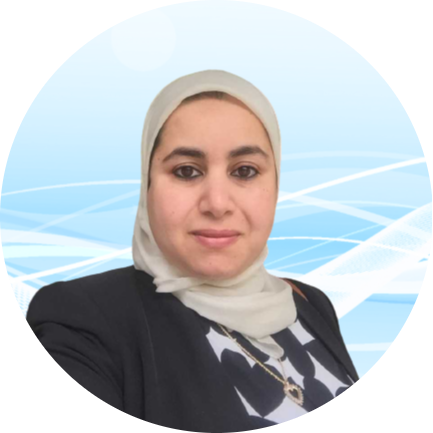Honorary Keynote

Prof. Yoshua Bengio
A.M. Turing Award
Université de Montréal - MILA - CIFAR - IVADO, Canada
Recognized worldwide as one of the leading experts in artificial intelligence, Yoshua Bengio is most known for his pioneering work in deep learning, earning him the 2018 A.M. Turing Award, “the Nobel Prize of Computing,” with Geoffrey Hinton and Yann LeCun.
He is a Full Professor at Université de Montréal, and the Founder and Scientific Director of Mila – Quebec AI Institute. He co-directs the CIFAR Learning in Machines & Brains program as Senior Fellow and acts as Scientific Director of IVADO.
In 2019, he was awarded the prestigious Killam Prize and in 2021, became the second most cited computer scientist in the world. He is a Fellow of both the Royal Society of London and Canada and Officer of the Order of Canada.
Concerned about the social impact of AI and the objective that AI benefits all, he actively contributed to the Montreal Declaration for the Responsible Development of Artificial Intelligence.

Prof. Yoshua Bengio
A.M. Turing Award
Cognitively-inspired inductive biases for higher-level cognition and systematic generalization
Humans are very good at out-of-distribution generalization (at least compared to current AI systems) and it would be good to understand some of the inductive biases they may exploit and test these theories by evaluating how they can be translated into successful ML architectures, training frameworks and experiments. Natural language and experimental results in cognitive science and neuroscience provide a wealth of clues about the system 2 part of how humans understand the world and consciously reason about it. In this talk, I will discuss several of these hypothesized inductive biases, many of which exploit notions in causality and connect the discovery of abstractions in representation learning (the perception and interpretation part) and in reinforcement learning (the abstract actions). Systematic generalization is hypothesized to arise from an efficient factorization of knowledge into recomposable pieces corresponding to reusable factors. This is related yet different in many ways from symbolic AI (and this can be seen in the errors and limitations of reasoning in humans, as well as in our ability to learn to do this at scale, with distributed representations and efficient search). Sparsity of the causal graph and locality of interventions -- which can be observed in the structure of sentences -- have the potential to considerably reduce the computational complexity of both inference (including planning) and learning, which may be a reason for which evolution may have incorporated this "consciousness" prior. Although this talk will rest on a series of recent papers on these topics (e.g., on learning causal and/or modular structure with deep learning), much of it will be forward-facing and suggest open research questions in the hope of stimulating novel investigations and collaborations
Keynotes

Prof. Ali Idri
Mohammed V University of Rabat - UM6P, Morocco
Prof. Ali Idri is a Full Professor at ENSIAS, University Mohammed V, Rabat, Morocco. He received his Ph.D. in Cognitive and Computer Sciences from the University of Quebec at Montreal in 2003. Prof. Idri has an extensive experience in the use of Software Engineering and AI in Medicine. He is the Principal Investigator (PI) of several ML research projects supported by national and international scientific research councils, such as CNRST and NAS, as well as by the Moroccan Ministry of High Education (MHESR). Prof. Idri is ranked the 3rd top researcher in the world in the field of Software Effort Estimation and amongst the top 2% researchers in the world across all scientific fields in a recent study published by Stanford. Prof. Idri has been awarded the Best Moroccan Researcher Award in Computer Science for the years 2016 - 2020 in a 2021 Research Excellence Awards ceremony organized under the auspices of the MHESR and CNRST.

Prof. Hajar Moussannif
Cadi Ayyad University, Morocco
Hajar Mousannif is an associate professor and founder of the Master program in Data Science at Cadi Ayyad University, Morocco. She holds a PhD degree in computer Science, a Habilitation degree in Artificial Intelligence and an Engineering degree in Telecommunications. Her primary research interests include Artificial Intelligence, Machine Learning, Big Data, IoT, Human Computer Interaction, and next generation technologies. In addition to her academic experience, she chaired the Program Committee of many international conferences. She leads both the TinyML and the Nvidia AI Moroccan chapters. Hajar Mousannif holds two patents on her work on Artificial Intelligence and was selected among 5 best female researchers in North Africa. She received many international awards such as the L'Oréal-UNESCO Award and the Emerald Litterati Prize for Excellence. In December 2020, she was selected as the GOLD winner of the prestigious International prize: "WomenTech Global AI Inclusion Award".

Dr. Halima Bensmail
Qatar Computing Research Institute (QCRI), Qatar
Halima Bensmail is a Machine learning statistician and bioinformatician who
specializes in developing and analyzing big omics data using statistical machine learning and AI. She received her Bachelor in Mathematics from the University of Science Mohamed V, Morocco and a master’s and PhD degree in Mathematics and Statistics from the University of Paris VI, France. She was a postdoc in the Department of Statistics at the University of Washington, a research associate in the Department of Biostatistics at Fred Hutchinson Cancer Research Center, a scientist in the Data Theory Group at the University of Leiden, a tenured assistant and associate professor in the Department of Statistics at the University of Tennessee and an associate professor of Biostatistics and Bioinformatics in the Master of Public Health at Virginia Medical School.
Halima is currently a principal scientist at Qatar Computing Research Institute and a joint professor at Hamad Bin Khalifa University focusing on building robust algorithms to analyze big omics data (genomics, proteomics, microbiome, metabolomics and pharmacogenomics…) providing explanation and insight for several disease using machine earning and AI for High Throughput data analysis.

Kemal El Moujahid
Google TensorFlow, USA
Kemal El Moujahid is the Product Director for TensorFlow at Google. He is passionate about solving big problems with AI and building vibrant developer communities. Prior to joining Google, Kemal led M, Facebook's virtual assistant, the Messenger Platform, and Wit.ai. Kemal graduated from the Ecole Polytechnique and Telecom Paris, and holds an MBA from the Stanford Graduate School of Business.

Dr. Kaoutar El Maghraoui
IBM Research AI, USA
Dr. Kaoutar El Maghraoui is a principal research scientist at the IBM T.J Watson Research Center where she is focusing on innovations at the intersection of systems and artificial intelligence (AI). She leads the research agenda of End-Use experimental AI testbed of the IBM Research AI Hardware Center, a global research hub focusing on enabling next-generation accelerators and systems for AI workloads. She co-led IBM’s Global Technology Outlook in 2017 where she contributed to creating IBM’s vision for the future of IT across global labs and business units focusing on IBM’s AI leadership. Kaoutar has co-authored several patents, conference, and journal publications in the areas of systems research, distributed systems, high performance computing, and AI. Kaoutar holds a PhD. degree from Rensselaer Polytechnic Institute, USA. She received several awards including the Robert McNaughton Award for best thesis in computer science, Best of IBM award in 2021, IBM’s Eminence and Excellence award for leadership in increasing Women’s presence in science and technology, several IBM outstanding technical accomplishments, and 2021 IEEE TCSVC Women in Service Computing award. Kaoutar is global vice-chair of the Arab Women in Computing organization and avid supporter and active member in many women in science and technology initiatives.

Mehdi Ghissassi
DeepMind, United Kingdom
Mehdi heads up the Product team at DeepMind, the world's leading research organization that builds safe AI systems and is committed to solving intelligence, to advance science and benefit humanity. Prior to that, Mehdi was at Google in its Mountain View headquarters, leading strategy for emerging markets and enterprise products. Mehdi holds both a MSc in Engineering from Ecole Polytechnique in France and an MBA from Columbia University

Prof. Mohamed Essaaidi
Mohammed V University of Rabat, Morocco
Mohamed Essaaidi is an IEEE Senior Member, Chief of Party of Interactive Digital Center Morocco (since October 2020) and a Professor at ENSIAS, Mohammed V University (UM5), Rabat (Since January 2020), Past Director of International Cooperation at the Ministry of General Affairs & Governance, Morocco (2019), Past Director/Dean of ENSIAS ( 2011-2019). Pr. Essaaidi is IEEE Global Cities Alliance, MEA Chairman (2021), IEEE Humanitarian Activities Committee (HAC) Assessment Sub-Committee Member (2021), IEEE EAB Teaching Excellence Editorial Hub, Member (2021). He is the founder and past Chairman of the IEEE Morocco Section (2005-2016), co-founder and chair of IEEE Morocco APS/MTT-S joint Chapter (2005-2010), IEEE Communications/Computer Society Chapter (2006-2008) and IEEE Education Society Morocco Chapter chair from 2007 to 2009. He has been a member of Committee of Global Accreditation activities of IEEE Education Activities Board (2017-2018). He has been also Director of the Morocco Office of Arab Science and Technology Foundation, ASTF (2006-2009) and the Coordinator of ASTF RD&I Network of Electro-Technology (2006-2008). He has authored and co-authored 10 books and more than 200 papers in international refereed journals and conferences in the field of Electrical and Computer engineering. He is the founder and the General Chair / co-chair of several IEEE technically sponsored international conferences and holds 10 patents in the field ICT.

Ulrich Paquet
DeepMind, United Kingdom
Ulrich is a South African research scientist at DeepMind, who lost his heart somewhere in the bushveld and is always looking for ways to find it. His most recent expedition in this quest is with the Deep Learning Indaba and its community of hard-working, dedicated friends and peers. He holds a PhD in machine learning from the University of Cambridge, lived life on the edge in two high tech startups, managed a team in Apple, and with Noam Koenigstein developed the core of the Microsoft recommender system. He was on the initial Xbox One team, and is still itching to build the next big thing.

Walid Daou
OCP Group, Morocco
Passionate by the impact of Data and Algorithms on the operating model of businesses, Walid currently leads the Advanced Analytics and Artificial Intelligence projects at OCP, in the Digital Office. His role is to identify and deliver Data Science projects with a strong business impact, with the help of a team of Data Scientists and Developers. Former Entrepreneur, he founded and run a startup in Edtech during six years, that became the leader in the market of preparation of competitive exams for engineering students, in Morocco. Machine Learning enthusiast, he teaches the "Artificial Intelligence for Business" course at EDHEC. He is a graduate of Ecole Polytechnique and Ecole des Mines de Paris, in Applied Mathematics.

Prof. Ali Idri
Data Preprocessing in Medical Knowledge Discovery
Current information and storage technologies are resulting in the explosive growth of many business, government, and scientific databases. This has led to the development of advanced techniques and tools to assist humans extract useful information and make informed decisions from available data. Knowledge discovery in databases (KDD) has therefore become a very active research field and its applications may range from business management, and market analysis, to engineering design and medical exploration. KDD is concerned with the development of powerful and versatile tools for making sense of data. It consists of three main steps: data preprocessing (DP), data processing or data mining (DM), and knowledge evaluation and validation. DM is the mathematical core of KDD which deals with the application of intelligent techniques in order to obtain useful patterns, while DP deals with different real-world data imperfections for a successful use of DM techniques. In medicine, KDD can be used to extract knowledge from clinical data for effective medical diagnosis, prognosis, treatment, screening, monitoring, and management. However, medical data are usually incomplete, imbalanced, and contain outliers, noise, and inconsistencies along with redundant and irrelevant variables. This makes DP a necessary step before any DM algorithm is applied. In fact, about 30-70% of effort and time is usually spent on DP, while the DM step requires only about 10-25% of the total effort of a KDD project. Applying DP to medical datasets can have several benefits such as improving clinical interpretability, reducing the computational cost, improving the performance of the predictors and reducing their complexity.

Prof. Hajar Moussannif
Artificial Intelligence: Unlocking Real Value Beyond the Hype.
From Virtual Assistants communicating with humans and offering relevant responses to their queries in real time, to data analytics tools amassing torrents of data and using deep learning to sift through them and recognize patterns, the Artificial Intelligence field is growing at an unprecedented pace. AI is reshaping the way humans think, operate and live. The aim of this talk is to highlight the trends, as well as the emerging areas in the AI field beyond the hype, covering interesting applications from both research and business perspectives, with special focus on generative modeling, transformer and tinyML.

Dr. Halima Bensmail
Harnessing big 'Omics' data with ML and AI for disease signature discovery

Kemal El Moujahid
Google Machine Learning Ecosystem for Research and Production
Kemal El Moujahid will introduce the Google Machine Learning ecosystem, and how it bridges the gap between Research and Production. Kemal will share how TensorFlow, JAX, TPUs, help researchers push the boundaries of ML, and empower developers to solve problems they are passionate about.

Dr. Kaoutar El Maghraoui
Powering the Future of AI through Specialized AI hardware Accelerators

Mehdi Ghissassi
Building Research grounded products that impact billions of users
I will be sharing lessons from the past 5 years partnering with Google teams to build products that are grounded in the research and scientific breakthroughs coming out of DeepMind's research teams.

Prof. Mohammed Essaidi
Morocco's Strategies and Policies to Leverage AI For Its Socioeconomic Development
Artificial Intelligence presents huge opportunities and an unprecedented potential for socioeconomic and sustainable development through the amazing tools it provides such as Machine / Deep Learning, that allow to get insight from Data, and processes automation and optimization in all kind of areas such as industry, education, healthcare, agriculture, energy, etc. According to McKinsey predictions, AI may deliver an additional economic output of around US$13 trillion by 2030, increasing global GDP by about 1.2 % annually. Most countries around the world are establishing national AI strategies and policies to tap into these amazing opportunities. During the last few years, Morocco has put in place several strategies and public policies to tap into the outstanding opportunities of AI in key areas as diverse as industry, education, public services, healthcare, agriculture, smart cities, etc. This keynote talk will give an overview of these strategies and policies and will also focus on all kinds of indicators related to Morocco's AI readiness and its impact on different areas.

Ulrich Paquet
AlphaZero: A Retrospective Story
As a chess-playing teenager in South Africa, I followed the match between Garry Kasparov and IBM's Deep Blue from a long distance. It was an exciting time and an exciting moment in the history of AI, computing and chess. As a youngster that was still only coding in Pascal, I wished that I had an insider's view of what IBM's system looked like. Fast forward more than two decades, and there was another exciting moment in the history of AI, computing and chess. DeepMind's reinforcement-learned system called AlphaZero entered the scene. It learned to play jaw-dropping chess itself, either ignoring conventional human wisdom or showing deep human-like instinct. This talk will give an insider's view of AlphaZero: what it is, how it is trained, what its impact has been, and what AI research has blossomed around it.

Walid Daou
How AI can Create Value for Corporates : History and Use Cases
Even if more and more companies are building Data Science teams internally, a lot of AI projects do not create as much value as expected; why so? And how concretely Data Scientists can create value for corporates, especially for non tech companies?
